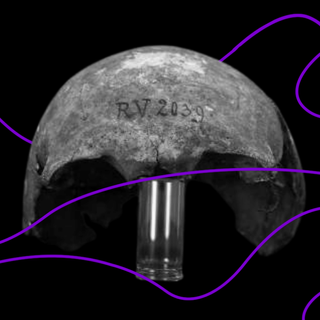Researchers have successfully pinpointed the region of the human brain associated with spiritual and religious beliefs — suggesting these fundamental principles are woven into “our neuro-fabric.”
Published in Biological Psychiatry last week, the study found that spirituality and religious notions are localized to a brain circuit centered in the periaqueductal gray — a region of “gray matter” in the midbrain — that is associated with “fear conditioning, pain modulation, altruistic behaviors, and unconditional love.”
“Our results suggest that spirituality and religiosity are rooted in fundamental, neurobiological dynamics and deeply woven into our neuro-fabric… We were astonished to find that this brain circuit for spirituality is centered in one of the most evolutionarily preserved structures in the brain,” principal investigator at the Brigham’s Center for Brain Circuit Therapeutics in the U.S., who led the study, said in a statement.
Studying the brain maps of 88 neurosurgical patients who underwent brain tumor removal, researchers found that disruptions in their brain circuits due to surgeries resulted in an increase or decrease in their self-reported spiritual beliefs — depending on the node (i.e., either positive or negative) of the neural circuit affected.
Disruption of positive nodes resulted in a decrease in religious beliefs, and vice versa. To double-check, the researchers compared their findings against a dataset of 100 patients, who experienced penetrating head trauma from combat during the Vietnam War. The results were found to be consistent with each other — identifying the region of the brain linked to spiritual beliefs.
The researchers are excited about the intersection of science and religion the findings present. “At the level of science and technology, we’re excited that brain imaging methods are increasingly able to probe aspects of human nature that have traditionally been exclusive to philosophers and theologians,” Ferguson told Medical Research in an interview. “We look forward to what we hope will be productive conversations between neuroscience, medicine, spirituality studies, and religion,” he added.
Related on The Swaddle:
Can Occult Disciplines Like Astrology, Tarot Improve Mental Health?
Interestingly, the results also showed that brain lesions (tissues that underwent abnormal changes due to diseases or trauma) associated with Parkinson’s disease, intersected with areas of the brain circuit associated with decreased spirituality; meanwhile, lesions associated with delusions and the alien limb syndrome intersected areas of the circuit linked to increased spirituality. However, the researchers clarified that these associations don’t establish causal links between spirituality and conditions affecting the nervous system.
“[T]hese overlaps may be helpful for understanding shared features and associations, but these results should not be over-interpreted,” Ferguson warned, adding that the results “do not imply that religion is a delusion, that historical religious figures suffered from alien limb syndrome, or that Parkinson’s disease arises due to a lack of religious faith. Instead, our results point to the deep roots of spiritual beliefs in a part of our brain that’s been implicated in many important functions.”
At present, the researchers plan to identify brain circuits associated with different forms of spiritual ideas — like, mysticism and fundamentalism, for instance. However, they also want to check the efficacy of the results across people from different cultural backgrounds — since both the present datasets of people were predominantly Christian.
The study didn’t take the participants’ upbringing, which can play an important role in shaping one’s religious beliefs, into account either — a point they hope to improve upon in future studies.
In the meantime, Ferguson also intends to explore whether spirituality can play a part in clinical treatment.
“There seems to be this perennial union between healing and spirituality across cultures and civilizations… I’m interested in the degree to which our understanding of brain circuits could help craft scientifically grounded, clinically translatable questions about how healing and spirituality can co-inform each other,” he said.




